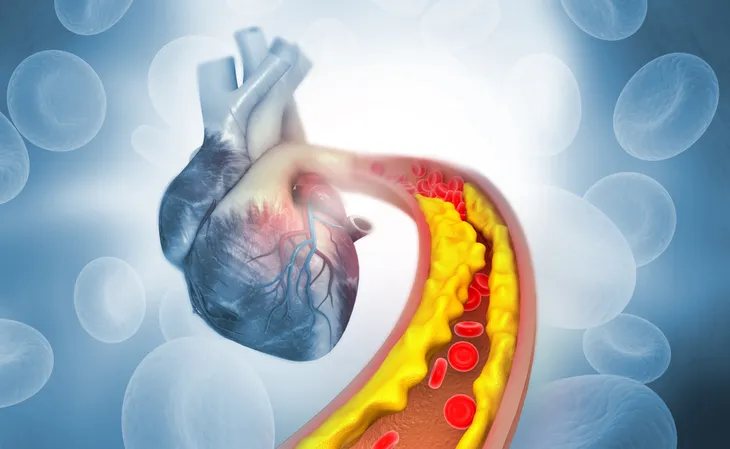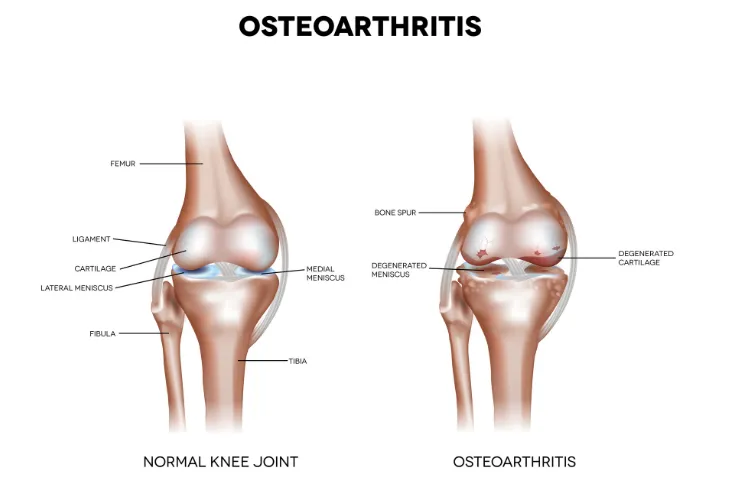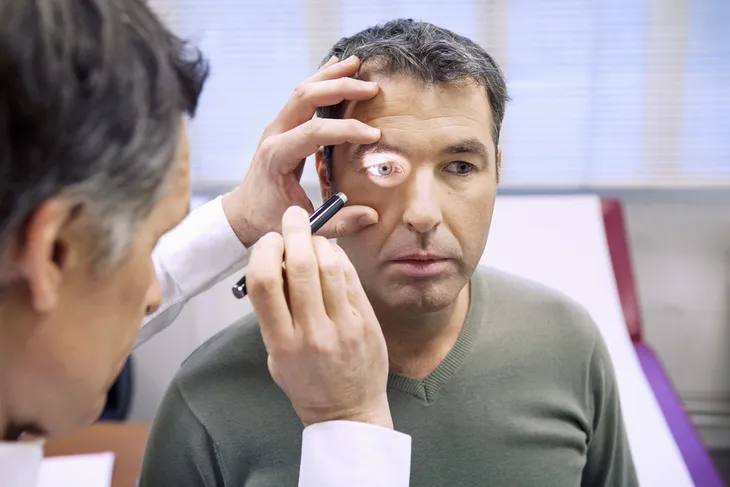- Turning 50 is a milestone and while many people are in their prime, you may begin to experience some health changes.
- Individuals who are 50 and older should be on the lookout for high cholesterol, high blood pressure, arthritis, diabetes, and osteoporosis.
- Your chances of developing cancer, lung disease, hearing loss, and vision changes also greatly increase with age. All the more reason to get the necessary medical screenings.
Turning 50-years old is a huge milestone in life. Many people are in the prime of their life and begin to think about what their future holds. One aspect of the 50+ life that some people don’t think about is the health changes they’ll encounter.
There are several common health problems many people will experience as a 50-year-old. We are here to explain those problems and give you the information you’ll need to know what to expect and how to tackle the problems head-on. Keep reading to learn more.
High Cholesterol
High cholesterol can cause the buildup of plaque on the inside of your blood vessels. This causes those vessels to narrow and can break off causing a stroke or heart attack. Cholesterol levels generally increase with age and it’s something that your doctor will be on the lookout for when you turn 50.
Since high cholesterol causes no signs or symptoms it’s important that you are always aware of its possibility. Eating a heart-healthy diet, exercising, and regular doctor visits to check your cholesterol can help you avoid serious consequences.
High Blood Pressure
As you age, the blood vessels in your body stiffen, plaque develops, and as a result, your blood pressure increases. Just like high cholesterol, high blood pressure often does not have symptoms and can go undetected if you don’t have regular doctor visits or blood pressure checks. If left untreated it can cause a slew of health problems like stroke and heart disease.
Thankfully, high blood pressure can be managed with lifestyle changes and medication. If you maintain a healthy body weight, exercise regularly, and take your prescribed medication (if necessary) you can keep your blood pressure down and reduce your risk of developing other health problems.
Arthritis
Arthritis is a condition that many people suffer from as they age, especially osteoarthritis. This type of arthritis is the wear and tear kind that many people 50 and over will begin to feel. It causes stiffness, pain, and swelling in the joints. You might feel it in your fingers, feet, back, or just about anywhere.
If you notice that you are suffering from arthritis symptoms check in with your doctor. They may want to evaluate your symptoms to make sure you aren’t suffering from a different condition or from rheumatoid arthritis. Treatment for osteoarthritis ranges from exercise, hot and cold therapy, over-the-counter medications, and prescription medication.
Diabetes
Did you know that 26.4 million people 65-years and older have prediabetes in the United States? That’s 48.8-percent of that age group’s population. Those statistics from the Centers for Disease Control and Prevention (CDC) are astounding and put into perspective how common this disease is as we age.
Type 2 diabetes, the kind that you get as you age, can be managed with lifestyle changes and medication. Eating a healthy diet, exercising, and following your doctor’s recommendations can make a huge difference in your overall health. When diabetes goes unmanaged it can lead to chronic kidney disease, vision loss, and so much more.
Osteoporosis
When you suffer from osteoporosis your bones become brittle and weak. Your bones are constantly absorbing and replacing bone tissue. When the bone tissue replacement doesn’t happen as fast as the absorption then osteoporosis develops.
According to the CDC, 20-percent of women 50 and older have osteoporosis. Lucy McBride, MD reported to the American Association of Retired Persons (AARP), “When you stop making estrogen, your bone density typically goes down.”
When you reach 50, and even before then, participating in weight-bearing exercises can help to reduce the risk of osteoporosis. Talk to your doctor about taking calcium and vitamin D supplements to also help reduce your risks.
Depression
Mental health has now become a widely talked about health issue that people no longer ignore. About 4.6-percent of people ages 46-64 suffer from depression, says Medscape. Turning 50 often brings major changes in your life. With aging parents, kids leaving the house, and job changes it can be hard to manage it all. Adding a mental health condition to the mix can put people over the top.
Always be honest with your doctor on how you are feeling. Now is not the time to hide your feelings and try and work through them. Ask your doctor how to best navigate your feelings and if there are medications, lifestyle changes, therapies, or anything else that can get you feeling back to normal.
Cancer
As we age, our risk for cancer increases. When we hit 50 the number of new cancer cases in the United States starts a sharp trend upward. However, with regular cancer screenings like colonoscopies, mammograms, and more these cancers can be successfully treated.
The American Cancer Society lists recommended cancer screenings by age. Those ages 50-64 are recommended to be screened for colon, breast, lung, cervical, and prostate cancer. Make sure you talk to your doctor about setting up these screenings at your next visit.
Shingles
If you or someone you know has had shingles then you know how painful this rash can be. Shingles are from the same virus that causes chickenpox. If you had chickenpox the virus lays dormant in your body and can cause shingles later on in life. The rash tends to show up along the torso and is red and painful.
The CDC recommends that people 50 and over get the shingles vaccine. It’s a 2 dose vaccine, with the second shot given 2 to 6-months after the first shot. Shingrix is the vaccine used in the United States and it’s incredibly effective at preventing shingles. If you are due for your shingles vaccine, talk to your doctor or pharmacist to get protected.
 novak.elcic / Shutterstock
novak.elcic / ShutterstockObesity
Carrying extra weight can cause numerous health problems. “It’s linked to at least 20 chronic diseases, including heart disease, stroke, diabetes, cancer, high blood pressure, and arthritis. Nearly 45% of Americans ages 40 to 59 are obese,” reports WebMD.
It’s never too late to do something about your weight. The first step to losing weight should be talking to your doctor. Fad diets and dieting pills never work but your doctor can help you develop a real plan to get your weight under control.
Respiratory Disease
Respiratory diseases like asthma, chronic bronchitis, COPD, and emphysema are the fourth most common cause of fatalities in people 65 and older, says the CDC. As we age our chances of developing a respiratory disease increases and makes us more susceptible to developing lung infections like pneumonia.
To help prevent developing a lung disease avoid smoking, eat a healthy diet, exercise, and avoid air pollution when possible. If you already have a lung disease make sure to keep appointments with your doctor to ensure you are getting the best care possible.
Hearing Loss
Are you finding yourself saying “What did you say?” or “Huh?” more often? You might be suffering from age-related hearing loss. According to WebMD, “about 2% of Americans ages 45 to 54 have hearing loss that is “disabling.” That goes up to 8.5% for those ages 55 to 64.”
Some people have a family history of hearing loss and it might be something that they cannot avoid. For others, it might be linked to loud noises, a disease, or medication. If you find that your hearing is changing it’s time to get it evaluated. Hearing aids have come a long way over the years and are far more discreet than ever before.
Vision Changes
It’s no secret that our vision changes as we age. We hold things with small print closer or further from our faces and need stronger eyewear prescriptions. But it’s not just having stronger glasses that can change. There are a few eye conditions that can be found in people 50 and over.
Cataracts, which is a cloudy eye lens, or glaucoma, a group of eye conditions that affect the optic nerve, can develop as we age and lead to major vision changes. Eye exams are recommended every year for people 50 years and over. It can detect these changes and keep track of any new findings that may cause vision changes later on in life.














